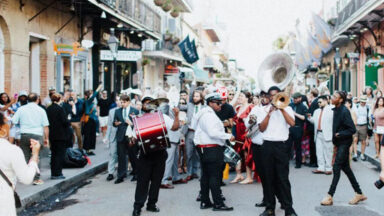
As Blavity previously reported, the weeks-long Russian invasion of Ukraine has had the unintended consequence of highlighting biases that exist. Not only in Ukraine and Russia, but in a variety of so-called Western nations. As conflict grips the international community, an interesting international dynamic has taken shape. While there has been strong opposition to the Russian invasion from the United States and its allies in Europe, as well as countries like Canada and Australia, Russia has continued to enjoy support from nations like China and India. Particularly interesting has been the mixed reaction from the African continent. The African Union has called on Russia “to imperatively respect international law, the territorial integrity and national sovereignty of Ukraine,” and individual countries such as Kenya have officially denounced the invasion. Still, other nations like South Africa have seen their leaders express support for Russian President Vladimir Putin’s efforts in Ukraine. To help sort out this unexpected political phenomenon, here are five things to know about the enduring support from Russia in Africa.
The links between Moscow and Africa go back to the Cold War.
In the past few weeks, leading figures in South Africa have been among the most vocal supporters of Russia’s incursion into Ukraine. South African President Cyril Ramaphosa has blamed NATO and Western nations for the current war while supporting Putin. Former President Jacob Zuma, a rival of Ramaphosa who also belongs to the ruling African National Congress party, has expressed his support for Putin as well, calling the Russian leader a “man of peace.”
Without Curry Warriors take out Miami
The affection for Russia has its roots in the Cold War and Soviet support for the ANC and other anti-colonial parties in Africa as a way for the USSR to gain allies in its confrontation with the U.S. and its allies. While Western leaders like Ronald Reagan and British Prime Minister Margaret Thatcher refused to condemn the racist Apartheid government, the ANC, including leaders like Nelson Mandela, found support from both the local South African Communist Party and the Soviet Union.
This support for the ANC and the anti-apartheid struggle has led to continued friendly relations with Russia. Julius Malema, the leader of the opposition Economic Freedom Fighters party, explained his party’s loyalty to Moscow in the current conflict. The EFF backs Russia, he said, because “Russia imposed sanctions in apartheid SA” while “America never imposed sanctions” against the apartheid regime (the U.S. actually did pass sanctions against South Africa in 1986, with Democrats and Republicans cooperating to overcome a veto by President Reagan).
Russia has expanded its economic and military ties with Africa in recent years.
South Africa is not the only African country sympathetic to Russia. CNN reports that 16 other African nations joined South Africa in abstaining from a UN resolution condemning the Russian invasion of Ukraine, while 28 nations supported the criticism of Russia. As Blavity previously reported, representatives of some nations, such as Kenya, have forcefully spoken against the invasion. Still, the mixed reactions from Africa reflect not only past Soviet involvement with the continent but also current relations between Russia and African nations. As CNN notes, Russia has become a major trading partner to several African countries. For more than a decade, South Africa and Russia have cooperated with Brazil, India and China as a group of “emerging economies” known by the acronym BRICS.
Source: Here’s Why Some African Nations Are Supporting Russia Against Ukraine



Recent Comments